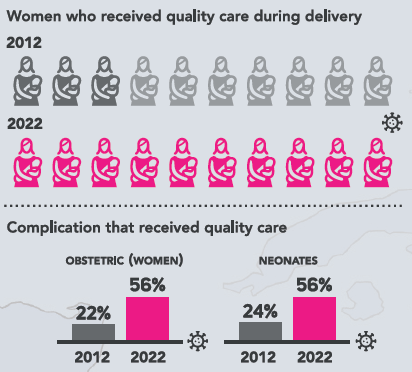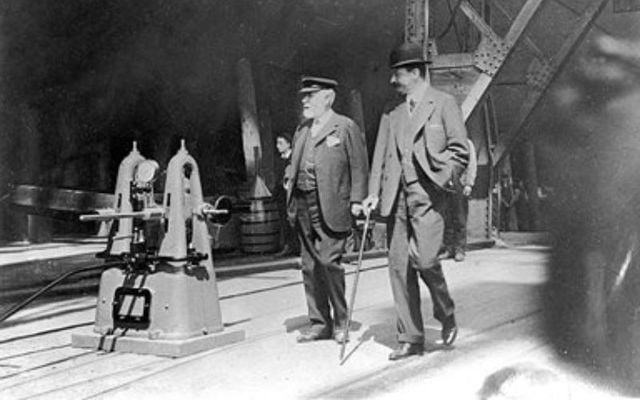Media Release – In Belize, the proportion of mothers and newborns receiving quality care for obstetric and neonatal complications more than doubled between 2012 and 2022, thanks to Salud Mesoamerica Initiative (SMI) efforts to improve maternal, child, and reproductive health in terms of access, use, and quality. Administered by the Inter-American Development Bank (IDB), this regional health initiative significantly improved health care for the poorest 20% of women, children, and adolescents in not only Belize, but also six other Central American countries and one Mexican state, according to an independent study from NORC at the University of Chicago. Before the project was launched in 2011, less than one in three Belizean women received the comprehensive care needed to prevent complications and ensure their and their newborns’ health, and the number of women and children receiving quality care when they experienced obstetric or neonatal complications was even lower (22% and 24%, respectively).
Following the project’s numerous interventions, which were planned and carried out in close partnership with Belize’s Ministry of Health and other public health institutions, nearly every woman received quality health care during delivery, and twice as many women and newborns received quality care when they experienced complications. These are critical steps toward reducing maternal and infant mortality in Belize. This alliance between the IDB, the national governments of Mesoamerica, and public and private donors such as the Carlos Slim Foundation, the Gates Foundation, and the Spanish and Canadian governments managed to create an impact throughout the Mesoamerican region, stretching far beyond its success in Belize.

Across participating countries, the initiative helped increase the share of newborns receiving quality care by a factor of nearly five and boosted comprehensive emergency neonatal care – such as vital sign monitoring, oxygen administration, and antibiotics – by 14 percentage points. “The Salud Mesoamerica Initiative not only improved access to healthcare, but also the quality of healthcare delivered to some of the most vulnerable in Belize and all of Central America,” said IDB President Ilan Goldfajn. “That has included not just improving maternal and neonatal care but doing it at twice the typical pace of improvement in low- and middle-income countries.
” SMI helped to foster systematic healthcare data collection that provided countries with their first comprehensive health care indicators in their poorest areas and created a blueprint for impactful, scalable health programs worldwide. Data supported the program’s results-based financing model, under which countries received a performance award when agreed-upon targets were met. This ensured that each country’s Ministry of Health focused on achieving results and accelerating improvements through their healthcare networks.
By addressing multiple barriers simultaneously, SMI accelerated change and significantly improved health outcomes for mothers and their babies in Belize and beyond. About the IDB The Inter-American Development Bank (IDB) is devoted to improving lives across Latin America and the Caribbean. Founded in 1959, the IDB works with the region’s public sector to design and enable impactful, innovative solutions for sustainable and inclusive development.
Leveraging financing, technical expertise and knowledge, it promotes growth and well-being in 26 countries..
Health

The Salud Mesoamerica Initiative saves the lives of thousands of Belizean mothers and newborns

In Belize, the proportion of mothers and newborns receiving quality care for obstetric and neonatal complications more than doubled between 2012 and 2022, thanks to Salud Mesoamerica Initiative (SMI) efforts to improve maternal, child, and reproductive health in terms of access, use, and quality. Administered by the Inter-American Development Bank (IDB), this regional health initiative significantly improved health care for the poorest 20% of women, children, and adolescents in not only Belize, but also six other Central American countries and one Mexican state, according to an independent study from NORC at the University of Chicago.















